Creating a First-Pass Algorithm for Corrosion Assessment in Bridge Inspections Using Machine Learning and UAV-Collected Imagery Data
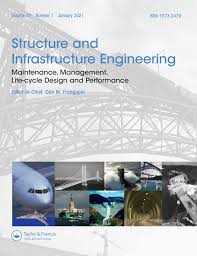
Herndon, H., and Tien, I., “Creating a First-Pass Algorithm for Corrosion Assessment in Bridge Inspections Using Machine Learning and UAV-Collected Imagery Data,” Structure and Infrastructure Engineering, pp. 1-15, 2025
Abstract — Unmanned aerial vehicles (UAVs) have the potential to reduce bridge inspection time and cost while increasing safety. However, UAV-collected field data has read more…
Promoting Youth Advocacy for Resilience to Disasters: A Pilot Study

Hyde, A., Alemdar, M., O’Connell, K., Omunga, P., Reckner, M., Loukissas, Y., Tien, I., Yousufi, M., Botchwey, N., Chatman, O., Clayton, K., McClain, M., Shabazz, M., and Branch, B., “Promoting Youth Advocacy for Resilience to Disasters: A Pilot Study,” Gender and Development, Vol. 32, No. 3, pp. 749-772, 2024
Abstract — Through Youth Advocacy for Resilience to Disasters (YARDs), we offer a case study of a middle-school science, technology, engineering, art, and mathematics (STEAM) programme to read more…
Taming the Flood

Civil engineer Iris Tien is helping coastal communities improve their resilience with the right flood-control infrastructure in the right places.
By Joshua Stewart | December 9, 2024
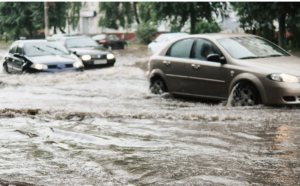 Closed roads causing headaches for commuters. Power outages from downed lines. Homes and businesses damaged from rising water.
Closed roads causing headaches for commuters. Power outages from downed lines. Homes and businesses damaged from rising water.
For many people who live near the southern coast, a summer thunderstorm can be more than an inconvenience. When they drop inches of rain in a flash, the storms can quickly overwhelm systems designed to carry away all that water. If they persist, rivers can swell, pushing water upstream and inland.
And, by all accounts, it’s only going to get worse.
A study in Nature published in the spring found many coastal areas might be underestimating their flood risk thanks to sea levels that are rising and land that’s sinking. High tides alone could create substantial flooding problems by 2050 in the 32 coastal areas the study’s authors evaluated. Places like Savannah, Georgia, and surrounding Chatham County are some of the most at risk communities.
As communities grapple with mitigating current and future flood risks, Iris Tien and researchers in her civil engineering lab are working to help. Her team is developing a framework to help residents and city planners identify the right kind of flood-control infrastructure and the right places to put it.
“One of the big gaps I saw while working with coastal communities is that a lot of these infrastructure decisions are made ad hoc,” said Tien, Williams Family Associate Professor in the School of Civil and Environmental Engineering. “It’s often not very systematic. It’s not really data-based. This also leaves the process open to potential bias, where you don’t necessarily develop these solutions for the places that need them the most.”
Gray or Green?
Since Tien is a civil engineer, it was natural for her to consider flood mitigation in the context of infrastructure systems. After all, her research focuses in part on infrastructure networks and the relationships and interdependencies between them.
For flood control, the choices largely come down to deciding between building “gray” solutions or “green” ones, each with their own benefits and costs. Gray infrastructure includes more traditional drainage systems and stormwater sewers. Green solutions could be ponds or basins, even parkland, that harness nature’s processes for collecting, managing, and slowly releasing floodwaters. Such systems also sometimes have additional benefits for the community that should be weighed when making decisions, Tien said.
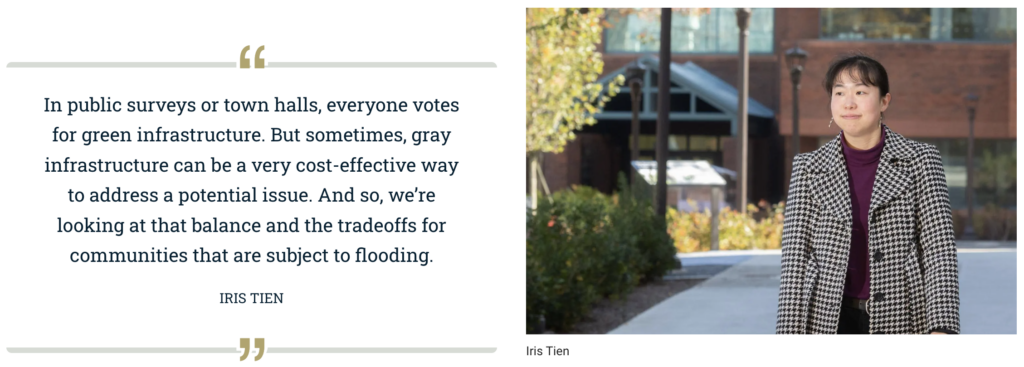
Hurricane Helene is a threat like few others Georgia has faced

By Drew Kann | September 26, 2024
The state of Georgia has been lashed by its share of tropical storms over the years.
In 2018, Hurricane Michael’s ferocious winds tore across a wide swath of southwest Georgia, leaving rural communities facing a yearslong recovery. Then last year, Hurricane Idalia devastated the state’s cotton and pecan crops. Only weeks ago, the deluge that Hurricane Debby dropped on the Georgia coast left entire neighborhoods underwater.
But experts say Hurricane Helene, which is expected to strike Georgia on Thursday night and into Friday morning, poses threats that few Georgians — particularly around metro Atlanta — have faced before.
…
Power outages, water problems
Kim Greene, the president and CEO of Georgia Power — the state’s largest electric utility — warned Thursday that Georgians should “prepare for the potential of power outages that could last multiple days due to the size and extensive reach of this storm.”
“Helene is a very large storm, moving into South Georgia with very little time to substantially weaken, and we expect the high winds and heavy rain to cause significant damage in many of our communities,” Greene said in a statement.
Iris Tien, a professor of civil and environmental engineering at Georgia Tech, said those power outages could cascade and hit other critical services, like water systems.
“We’ve seen in systems that we’ve studied that many times, any outages in the water system aren’t actually due to water system outages themselves, but actually due to power outages at the substations that support them,” Tien said. “Even drinking water, which clearly is a critical resource and asset for everyone, is potentially at risk.”
Impact of Ground Motion Uncertainty Evolution from Post-Earthquake Data on Building Damage Assessment
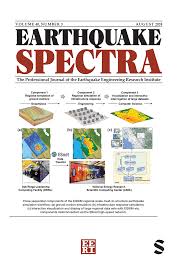
Lozano, J., Tien, I., Nichols, E., and Frost, J., “Impact of Ground Motion Uncertainty Evolution from Post-Earthquake Data on Building Damage Assessment,” Earthquake Spectra, Vol. 40, No. 4, p. 2430-2455, November 2024
Abstract — Accurate damage assessment after an earthquake is crucial for effective emergency response. Using ground motion information enables rapid building damage read more…
The Impact of Youth Education on Green Stormwater Infrastructure Recommendations to Increase Equity and Resilience in Marginalized Flood-Prone Communities
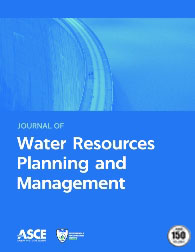
Reckner, M., Tien, I., Smith, S., Omunga, P., Alemdar, M., and Hyde, A., “The Impact of Youth Education on Green Stormwater Infrastructure Recommendations to Increase Equity and Resilience in Marginalized Flood-Prone Communities,” ASCE Journal of Water Resources Planning and Management, Vol. 150, No. 9, September 2024
Abstract — Marginalized communities disproportionately experience the impacts of climate change, including more intense flooding and longer recovery times from disasters. Youth, read more…
Assessing Community Needs in Disasters: Transfer Learning for Fusing Limited Georeferenced Data from Crowdsourced Applications on the Community Level
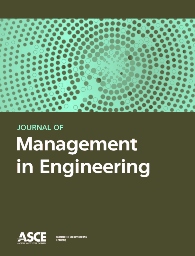
Salley, C., Mohammadi, N., Xie, J., Tien, I., and Taylor, J., “Assessing Community Needs in Disasters: Transfer Learning for Fusing Limited Georeferenced Data from Crowdsourced Applications on the Community Level,” ASCE Journal of Management in Engineering, Vol. 40, No. 6, pp. 1-16, 2024
Abstract — The effectiveness of infrastructure resilience relies on the seamless extraction of information, timely acquisition of critical knowledge, and heightened situational awareness. The read more…
Engaging marginalized youth in decisions on local stormwater infrastructure
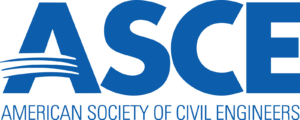

September 10, 2024
As climate change increases rainfall levels and affects stormwater systems around the globe, marginalized communities are affected the most. As communities look at ways to improve, invest, and develop more resilient stormwater systems, it is important to involve a diverse group to provide feedback on infrastructure design, although differing priorities and competing factors will lead to a wide variety of proposed solutions. In these community discussions, the younger generation is sometimes overlooked or underrepresented despite being perceived as the future of their communities – where an average of 80% of these young adults stay within about 100 miles of where they grew up. Involving them early is more likely to keep them engaged and to help with decision-making that will impact their flood-prone communities and critical water resources.
In a study for the Journal of Water Resources Planning and Management, researchers Michelle Reckner, Iris Tien, Sarita Smith, Philip Omunga, Meltem Alemdar, and Allen Hyde strive to understand the perspective read more…
How aging pipes and a growing population added stress to Atlanta’s water system

By Peter Biello | June 3, 2024 | Heard on: All Things Considered
Since Friday, some residents have gone without water and businesses and government offices have temporarily closed. For a broader view of this infrastructure failure, GPB’s Peter Biello turns to Dr. Iris Tien with Georgia Tech.
As of Monday afternoon, a state of emergency remained in effect for a large portion of Atlanta, as the city continues to repair broken water mains. Since Friday, some residents have gone without water and businesses and government offices have temporarily closed. But for a broader view of this infrastructure failure, we turn to Dr. Iris Tien. She’s an associate professor in the School of Civil and Environmental Engineering at Georgia Tech. She spoke with GPB’s Peter Biello.
Peter Biello: It’s not uncommon for cities to experience a water main break, but how could it be that several major and minor water main breaks flooded city streets at the same time?
Iris Tien: So that’s one of the things that we look at in looking at these infrastructure systems that are all connected. And so we have this thing called cascading effects and cascading failures and outages, where one failure is actually the trigger effect for follow-on cascading failures through the system. And so in this case, with the water main break, once one of the mains breaks the flow, is just rerouted through other parts of the system, which can stress other parts of the network. And so it’s actually not necessarily a coincidence that they would fail together, but it’s actually that one of these breaks triggers these other main breaks like a domino effect.
Peter Biello: I see. And can you talk a little bit about the age of Atlanta’s water infrastructure and how the growth of the city, maybe, has impacted infrastructure like water mains?
Iris Tien: Certainly. So this is one of the things that we see across the U.S. In Atlanta, as well as in read more…
Illinois National Guard pairs with CIRI to identify critical infrastructure risks
![]()
By Lauren Laws | May 10, 2024
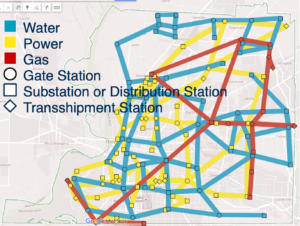 ‘Always Ready, Always There’. That is the motto of our nation’s National Guard. Whether it is responding to natural disasters such as tornadoes or earthquakes or to civic emergencies – the National Guard can be counted on to be on site to assist local authorities and organizations in bringing relief and recovery.
‘Always Ready, Always There’. That is the motto of our nation’s National Guard. Whether it is responding to natural disasters such as tornadoes or earthquakes or to civic emergencies – the National Guard can be counted on to be on site to assist local authorities and organizations in bringing relief and recovery.
In order to be so responsive, the National Guard must be prepared at all times. That requires planning, preparation and a solid understanding of the risks that disasters and disruptions can pose to the infrastructure and functions that keep our people safe and our societal functions operating.
The Critical Infrastructure Resilience Institute (CIRI) at the University of Illinois Urbana-Champaign is working closely with the Illinois National Guard to evaluate the use of software developed under Department of Homeland Security sponsorship and funding to support National Guard risk assessments of interconnected, interdependent critical infrastructure. Such risk assessments will help the National Guard to better plan responses to disasters.
Probabilistic Resilient Interdependent Infrastructure System Modeling, also known as PRIISM, analyzes how critical infrastructure systems are interconnected and interdependent, and how those connections impact risk.
“What we’ve found is that when we’re conducting a risk assessment of critical infrastructure, it’s critical to look beyond the single system to dependencies and interdependencies across systems to be able to get a full, comprehensive view of what the risk profile looks like for a given system or a given function,” said Dr. Iris Tien, PRIISM’s Principal Investigator and civil engineering professor at the Georgia Institute of Technology. read more…
Revolutionizing Risk Management: Breakthrough Research in 5G Infrastructure Security for Autonomous Vehicles
![]()
By Fiza Dahra | November 1, 2023
In recent years, a significant shift has occurred in the domain of critical infrastructure. Once characterized by their operational isolation, systems have evolved into complex interconnected networks capable of real-time information exchange and synchronized operations. The telecommunications industry is among the sectors at the heart of this transformation.
Broadscale deployment of 5G telecommunications infrastructure is gathering pace and this emerging cellular technology promises significant increases in bandwidth and network speed, dramatically decreased latency, and the ability to incorporate a vast array of devices. This new capability is already being exploited to enable new applications and radically new operational use cases. One such example is connected autonomous vehicles (CAVs) which rely on 5G capabilities to communicate with their environment (other vehicles and transportation infrastructure) to safely navigate autonomously. CAVs transmit and receive huge volumes of data in real time to establish situational awareness and to deliver operational instructions to the vehicle based on that awareness. Disruption or spoofing of these communication signals can have significant and potentially life-threatening consequences.
The Critical Infrastructure Resilience Institute (CIRI) – a Department of Homeland Security Center of Excellence at the University of Illinois Urbana-Champaign – has teamed with the Georgia Institute of Technology (Georgia Tech) to develop a methodology for quantitatively assessing the potential impacts of disruption to the 5G telecommunications infrastructure on CAVs and to identify strategies to mitigate those impacts.
The research team, led by Principal Investigator Dr. Iris Tien, adopted a holistic perspective, assessing risks across various components and scenarios, rather than focusing solely on specific 5G vulnerabilities. This approach enabled an in-depth risk assessment. Moreover, the team employed rigorous quantitative methods to read more…
Spatial and Temporal Evolution of Post-Disaster Data for Damage Assessment of Civil Infrastructure Systems
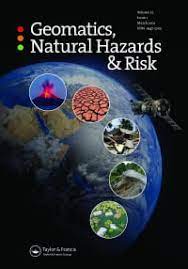
Lozano, J., Nichols, E., Frost, J., and Tien, I., “Spatial and Temporal Evolution of Post-Disaster Data for Damage Assessment of Civil Infrastructure Systems,” Geomatics, Natural Hazards and Risk, Vol. 14, No. 1, 2023
Abstract — Assessing damage to civil infrastructure is a resource-intensive process that is critical during the response to a disaster. Various datasets facilitate this process read more…
Impacts of 5G on Cyber-Physical Risks for Interdependent Connected Smart Critical Infrastructure Systems
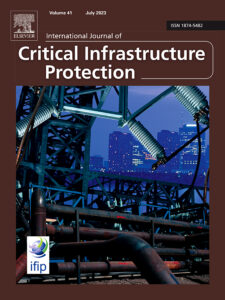
Vargas, P., and Tien, I., “Impacts of 5G on Cyber-Physical Risks for Interdependent Connected Smart Critical Infrastructure Systems,” International Journal of Critical Infrastructure Protection, Vol. 42, September 2023
Abstract — 5 G technology promises a wide range of benefits for critical infrastructure (CI), including improved reliability, increased efficiency, cost savings, and increased read more…
Data Collection Tools for Post-Disaster Damage Assessment of Building and Lifeline Infrastructure Systems
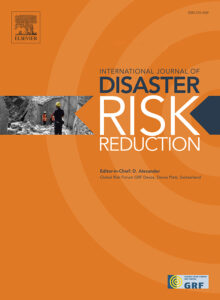
Lozano, J., and Tien, I., “Data Collection Tools for Post-Disaster Damage Assessment of Building and Lifeline Infrastructure Systems,” International Journal of Disaster Risk Reduction, Vol. 94, August 2023
Abstract — After a disaster event such as an earthquake or a hurricane, performing comprehensive and detailed damage assessment of lifeline infrastructure is read more…
Probabilistic Methods Committee (PMC) Hosts Inaugural Sponsors Meet-and-Greet
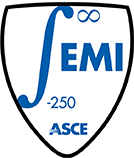
![]() Inaugural Meet-and-Greet Event with Sponsors for Student Paper Competition in Probabilistic Methods | July 5, 2023
Inaugural Meet-and-Greet Event with Sponsors for Student Paper Competition in Probabilistic Methods | July 5, 2023
For the ASCE EMI conference held at the Georgia Institute of Technology this year, the EMI Probabilistic Methods Committee was able to secure sponsorships from four companies to support the Student Paper Competition in Probabilistic Methods. As part of this sponsorship, the committee held an inaugural meet-and-greet event for both the student paper competition participants and industry sponsors. This event was held earlier this month.
Students were invited to give lightning talks on themselves and their work, and company representatives presented on their organizations. The event featured open discussion on academia and industry, with a wide-ranging discussion on the role of uncertainty quantification in design practices, structural reliability, and perceptions of risk in industry and across the general practice.
Iris Tien, Williams Family Associate Professor at the Georgia Institute of Technology, organizer of the event, current Vice Chair of the Probabilistic Methods Committee, and incoming Chair, said of the event, “It was a great opportunity for students to present on their work, for industry sponsors to meet some of our most promising students in structural engineering, and for a broader discussion of the role of uncertainty quantification and probabilistic methods in engineering mechanics and civil engineering. It is certainly something we look forward to building on for the future.”
New Fellowships Support High-Impact Cybersecurity Research

Cohort’s five faculty members will help grow the College’s work in cyber-physical systems security.
By Jason Maderer | May 10, 2023
Five faculty members will help grow the College of Engineering’s work in high-impact cyber-physical systems security (CPSS) as new Cybersecurity Fellows.
Fellows represent expertise in a variety of areas of CPSS, which addresses risks where cyber and physical worlds intersect. That includes the Internet of Things (IoT), industrial systems, smart grids, medical devices, autonomous vehicles, robotics, and more. read more…
Tool Helps Coastal Areas Find Ideal Spots for Water Level Sensors

Iris Tien’s method reduces the possible locations for sensors by nearly 99% and accounts for flood risk, population vulnerability, and more.
By Joshua Stewart | April 13, 2023
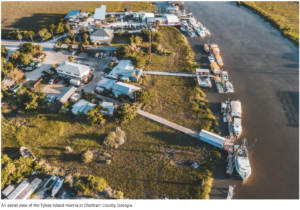
As climate change leads to rising sea levels and more powerful storms, coastal communities increasingly are turning to networks of sensors to track water levels. The sensors — which are progressively getting cheaper and more capable — can help officials anticipate flood risks and respond in emergencies.
A tool developed by Georgia Tech researchers can help make the most of those networks, pinpointing the ideal locations for water level sensors to maximize the real-time data available to emergency managers.
In a test case in Chatham County, Georgia, the approach developed by civil engineer Iris Tien reduced 29,000 potential sensor locations to just 381. The idea, then, is that officials can use their local expertise and historical knowledge to pick where to install sensors among those spots.
“We wanted to make sure to integrate that local expertise,” said Tien, Williams Family Associate Professor in the School of Civil and Environmental Engineering. “Something that I think is often missing in research is that there is specific local knowledge that can add value to the project and the solutions. That was part of our cooperative process: These are people who’ve seen flooding in the community and who know where sensors might be beneficial.”

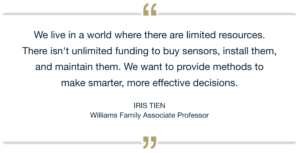 Tien has just published details of the tool in the journal Nature Communications Earth & Environment with Ph.D. student Jorge-Mario Lozano and intern Akhil Chavan. Tien stressed the approach would work in any coastal community. The code and instructions are freely available as part of their study. read more…
Tien has just published details of the tool in the journal Nature Communications Earth & Environment with Ph.D. student Jorge-Mario Lozano and intern Akhil Chavan. Tien stressed the approach would work in any coastal community. The code and instructions are freely available as part of their study. read more…
Locating Real-Time Water Level Sensors in Coastal Communities to Assess Flood Risk by Optimizing Across Multiple Objectives
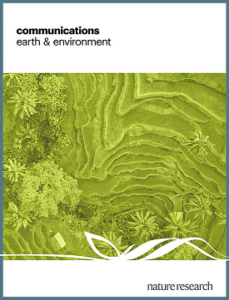
Tien, I., Lozano, J., and Chavan, A., “Locating Real-Time Water Level Sensors in Coastal Communities to Assess Flood Risk by Optimizing Across Multiple Objectives,” Nature Communications Earth and Environment, Vol. 4, No. 96, pp. 1-12, 2023
Abstract — Coastal communities around the world are experiencing increased flooding. Water level sensors provide real-time information on water levels and read more…
Prediction of Heat of Hydration of Cementitious Systems Using Gaussian Process Regression Enables Mass Concrete Thermal Modeling
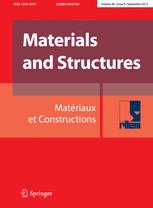
Al-Hasani, L., Perez, G., Herndon, H., Park, J., Poole, J., Tien, I., Washburn, N., Cho, Y., Gentry, T., and Kurtis, K., “Prediction of Heat of Hydration of Cementitious Systems Using Gaussian Process Regression Enables Mass Concrete Thermal Modeling, Materials and Structures, Vol. 56, No. 45, 2023
Abstract — The temperature and time-dependent heat of hydration of cementitious pastes is a fundamental property to understand concrete performance. Cement hydration can be depicted using read more…
Tien Honored for Work in Diversity Equity and Inclusion

Institute Research Awards: College’s researchers earn recognition for outreach efforts, impactful publishing, and expanding Tech’s research portfolio.
By Joshua Stewart | March 20, 2023
Georgia Tech’s executive vice president for research has recognized four College of Engineering faculty members and a spaceflight group for their outstanding contributions to the research enterprise.
The 2023 Institute Research Awards celebrate the achievements of faculty and staff as partners, mentors, and researchers. The College’s winners — comprising more than half of the awards categories — span five disciplines and emerged from more than 150 total nominations.
Iris Tien was honored for her work advancing diversity and inclusion, Marta Hatzell for early career research, Wilbur Lam for his impactful publications, Pascal Van Hentenryck for outreach efforts, and the Spaceflight Project Group for helping expand Georgia Tech’s research portfolio. read more…
Georgia Tech Announces 2023 EVPR Institute Research Award Winners

March 15, 2023
At Georgia Tech, the research enterprise covers activities from basic research to commercialization and societal use. Each year, the Executive Vice President for Research (EVPR) presents awards to recognize the achievements of faculty and staff as partners, mentors, and outstanding researchers across the many facets of the enterprise.
“Congratulations to all the exceptional nominees and to the individuals who were selected to receive this year’s Institute Research Awards,” said Chaouki Abdallah, executive vice president for Research at Georgia Tech. “These outstanding researchers were nominated by their peers for their diligent research efforts, and we are proud to acknowledge them for their commitment to advance science and technology and to improve the human condition.”
Awardees were selected in nine areas, from achievements in innovation to engagement and outreach. Two of the awards were given to groups of researchers who are making an impact collectively. This year, more than 150 researchers were nominated for these prestigious awards.
- Outstanding Achievement in Advancing Diversity, Equity, and Inclusion: Iris Tien, CEE, SEI
Awardees will be recognized at the Faculty and Staff Honors Luncheon on Friday, April 21.
Community-Scale Spatial Mapping to Prioritize Green and Grey Infrastructure Locations to Increase Flood Resilience
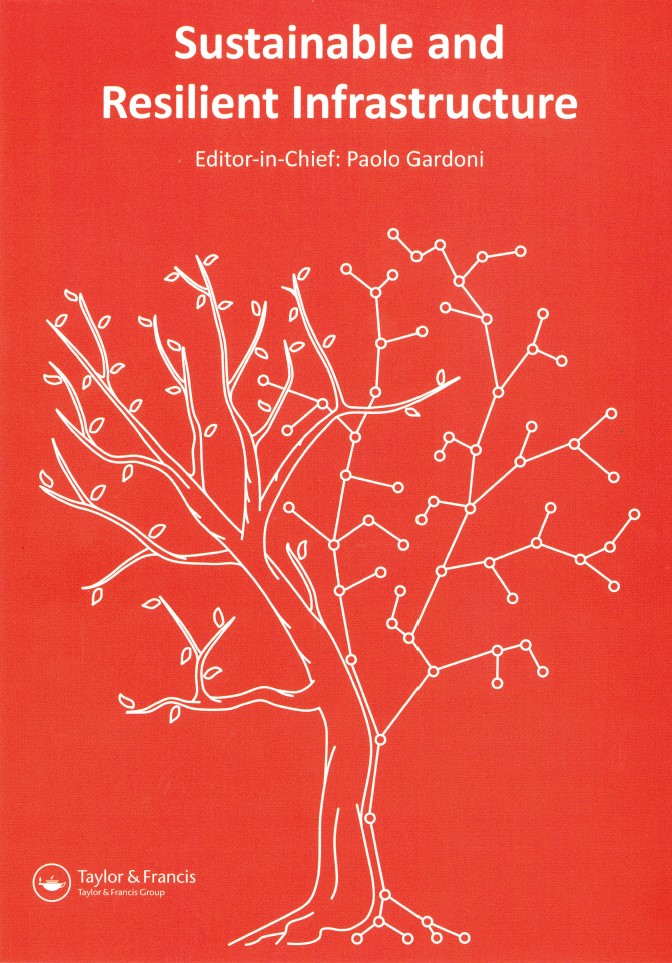
Reckner, M., and Tien, I., “Community-Scale Spatial Mapping to Prioritize Green and Grey Infrastructure Locations to Increase Flood Resilience,” Sustainable and Resilient Infrastructure, Vol. 8, No. S1, pp. 289-310, 2023
Abstract — With increasing investment in infrastructure to address flooding, including green and grey solutions, there are challenges in selecting the type and location of read more…
Identifying Critical Infrastructure in Imagery Data Using Explainable Convolutional Neural Networks
 Elliott, S., Shields, A., Klaehn, E., and Tien, I., “Identifying Critical Infrastructure in Imagery Data Using Explainable Convolutional Neural Networks,” Remote Sensing, Vol. 14, No. 21, pp. 1-15, 2022
Elliott, S., Shields, A., Klaehn, E., and Tien, I., “Identifying Critical Infrastructure in Imagery Data Using Explainable Convolutional Neural Networks,” Remote Sensing, Vol. 14, No. 21, pp. 1-15, 2022
Abstract — To date, no method utilizing satellite imagery exists for detailing the locations and functions of critical infrastructure across the United States, making response to natural disasters and other events read more…
Rebuilding After a Natural Disaster

Georgia Tech professors share their expertise on disaster recovery and smart infrastructure.
October 27, 2022
Hurricane season may be coming to an end soon, but it’s not without significant impact and devastation. Two Georgia Tech experts offer their perspective on infrastructure and how to rebuild after severe weather events.
Iris Tien, associate professor in the School of Civil and Environmental Engineering, points to hurricanes increasing in frequency and severity and says it’s not enough to build based solely on what’s happened in the past. read more…
Tien Offers a Prescription for Maximizing Investments in Nation’s Infrastructure

By Amy Kim | October 6, 2022
The passage of the Infrastructure Investment and Jobs Act made headlines in late 2021 for its price tag of $1.2 trillion — by some measures, the largest infrastructure package ever enacted in United States history. The act is a massive investment in the nation’s physical infrastructure systems. Georgia Tech civil engineer Iris Tien says it’s also a long-term investment in communities.
To be successful, the nation should focus on “meaningful investments in infrastructure that will result in resilient, sustainable, and equitable systems in support of communities,” said Tien read more…
Impacts of Varying Network Parameters on the Vulnerability and Resilience of Interdependent Critical Infrastructure Systems

Lee, C., and Tien, I., “Impacts of Varying Network Parameters on the Vulnerability and Resilience of Interdependent Critical Infrastructure Systems,” Sustainable and Resilient Infrastructure, Vol. 7, No. 6, pp. 984-1007, 2022
Abstract — Critical infrastructure systems are complex and subjected to evolving risks and hazards, which makes anticipating their behavior difficult. To prioritize among read more…
Tien Selected for International Research Award
![]()
By Elijah Hibberts | September 29, 2022
 Williams Family Associate Professor Iris Tien has been recognized by the International Association for Structural Safety and Reliability (IASSAR) with its Early Achievement Research Prize. This prize is awarded to a researcher under the age of 45 for outstanding contributions and accomplishments in the field of structural safety and reliability.
Williams Family Associate Professor Iris Tien has been recognized by the International Association for Structural Safety and Reliability (IASSAR) with its Early Achievement Research Prize. This prize is awarded to a researcher under the age of 45 for outstanding contributions and accomplishments in the field of structural safety and reliability.
Tien received the distinction at the organization’s International Conference on Structural Safety and Reliability on Sept. 15.
Awarded only once every four years, the IASSAR Early Achievement Research Prize is one of the highest honors one can receive in the field of risk and reliability. Tien is the first woman to receive the honor since the award became a single prize awarded across all areas and subspecialties within IASSAR.
Karen & John Huff School Chair and Professor Don Webster said Tien has become a global leader in probabilistic methods in civil engineering since joining the faculty in 2014.
“Dr. Tien is unique in conducting her research work with an eye towards achieving a combination of both fundamental scientific innovation and broad community impacts,” Webster said. “She is an innovative and brilliant thinker and has accomplished truly outstanding work in the field of probabilistic methods.”
New Canvas Site Expands Access to Student Resources

September 2, 2022
A new site aggregating information about campus resources ranging from mental health and well-being to academic support and career development is now available in Canvas, the Institute’s course management system. The site brings these important resources to the forefront of where students are interacting with their coursework online.
The College of Engineering’s (CoE) Diversity, Equity, and Inclusion (DEI) Council began building out the site about two years ago. The site amplifies work that was initiated by Student Engagement and Well-Being in 2020. A link to the new site, named GT Student Resources, is located on the left side course navigation menu in all Georgia Tech courses.
…
“We are excited to have this roll out to the campus after two years of hard work,” said Iris Tien, associate professor in the School of Civil and Environmental Engineering and chair of the CoE DEI Council. “Our hope is that this Canvas site will help students more easily find the resources they need and that the faculty will encourage their classes to explore this site to discover all of the incredible resources available to our students.”
Conjugate Bayesian Updating of Analytical Fragility Functions Using Dynamic Analysis with Application to Corroded Bridges
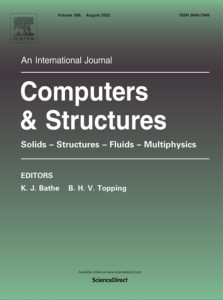
Zhang, Y., and Tien, I., “Conjugate Bayesian Updating of Analytical Fragility Functions Using Dynamic Analysis with Application to Corroded Bridges,” Computers and Structures, Vol. 270, pp. 1-20, October 2022
Abstract — Analytical fragility functions provide a way to quantify the risk of a structure. One method to construct seismic fragility curves is to perform a series of nonlinear read more…
Assessing the Impacts of Air Quality Alerts on Micromobility Transportation Usage Behaviors
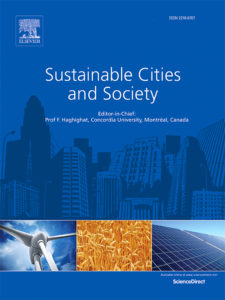
Xu, L., Taylor, J., and Tien, I., “Assessing the Impacts of Air Quality Alerts on Micromobility Transportation Usage Behaviors,” Sustainable Cities and Society, Vol. 84, pp. 1-8, September 2022
Abstract — To address the severe risks imposed by air pollution, governments around the world have prioritized air quality information disclosure and alert dissemination read more…
Technical Notes: Investing in infrastructure with resilience, sustainability, and equity in mind


June 13, 2022
Infrastructure is the built world around us, including the basic physical structures and organizational facilities (roads, bridge, power grid, clean water, etc.) that society needs to operate. The recent passage of the Infrastructure Investment and Jobs Act has brought increased attention to the current state of U.S. infrastructure, which scored a C- in ASCE’s most recent 2021 Infrastructure Report Card. Now is the time to think about what our infrastructure will look like in the future. In a new forum article in the Journal of Infrastructure Systems, author Iris Tien writes that a forward-looking approach will lead to infrastructure that is more resilient, sustainable, and equitable.
In “Recommendations for Investing in Infrastructure at the Intersection of Resilience, Sustainability, and Equity,” Tien offers seven recommendations for how we should think about and invest in infrastructure to achieve resilience, sustainability, and equity goals. She begins with our reactive approach to infrastructure. In most cases, we have waited for problems to arise before addressing them, rather than proactively maintaining the built environment. We need to shift our focus to anticipate problems in the future before things fail. She continues by recommending planning timelines and implementing risk-based approaches during the design and decision-making process, including cyber-security risks. And encourages cross-sector activities, that will break down traditional silos and look at infrastructure as an interdependent network. Read this thought-provoking piece outlining Tien’s infrastructure investment recommendations at https://doi.org/10.1061/(ASCE)IS.1943-555X.0000684.
Recommendations for Investing in Infrastructure at the Intersection of Resilience, Sustainability, and Equity
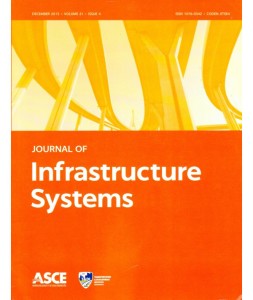
Tien, I., “Recommendations for Investing in Infrastructure at the Intersection of Resilience, Sustainability, and Equity,” ASCE Journal of Infrastructure Systems, Vol. 28, No. 2, June 2022
Abstract — Infrastructure systems—including water distribution, power, communications, and transportation systems—are critical to our public health and safety, national read more…
Methodology to Quantitatively Assess Impacts of 5G Telecommunications Cybersecurity Risk Scenarios on Dependent Connected Urban Transportation Systems
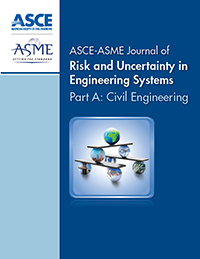
Vargas, P., and Tien, I., “Methodology to Quantitatively Assess Impacts of 5G Telecommunications Cybersecurity Risk Scenarios on Dependent Connected Urban Transportation Systems,” ASCE-ASME Journal of Risk and Uncertainty in Engineering Systems, Vol. 8, No. 2, June 2022
Abstract — The fifth generation (5G) technology standard for cellular networks is currently being developed and is in the early stages of rollout across the United States. This upgrade from 4G LTE (long-term evolution) read more…
Time Series Prediction in Nodal Networks Using Recurrent Neural Networks and a Pairwise-Gated Recurrent Unit Approach

Tong, Y., and Tien, I., “Time Series Prediction in Nodal Networks Using Recurrent Neural Networks and a Pairwise-Gated Recurrent Unit Approach,” ASCE-ASME Journal of Risk and Uncertainty in Engineering Systems, Vol. 8, No. 2, June 2022
Abstract —Characteristics at nodes in a network, such as values of demand, evolve over time. To make time-dependent decisions for a network, making time series predictions at read more…
Combined Effects of Soil Stress History and Scour Hole Dimensions on Laterally and Axially Loaded Piles in Sand and Clay under Scour Conditions
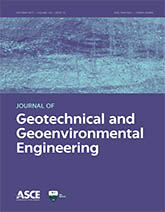
Zhang, Y., and Tien, I., “Combined Effects of Soil Stress History and Scour Hole Dimensions on Laterally and Axially Loaded Piles in Sand and Clay under Scour Conditions,” ASCE Journal of Geotechnical and Geoenvironmental Engineering, Vol. 148, No. 5, May 2022
Abstract — Removal of soil around a bridge foundation due to scour results in a reduction of the lateral and vertical foundation capacity due to the loss of soil support. The read more…
Investing in America’s infrastructure: Faculty weigh in on what to address in proposed infrastructure legislation
![]()
July 2, 2021
A bipartisan group of senators has announced a $1.2 trillion infrastructure framework, which aims to make transformational investments in infrastructure for transportation, clean water, universal broadband, renewable energy, remediation of legacy pollution, and resilience to the changing climate.
Though the legislation still awaits debate in Congress and approval from President Joe Biden, it represents an important step toward addressing the nation’s infrastructure needs.
Faculty from the School of Civil and Environmental Engineering — experts in the infrastructure systems covered by the proposal — shared their perspectives on what should be prioritized to meet the future needs of the nation.
System Resilience
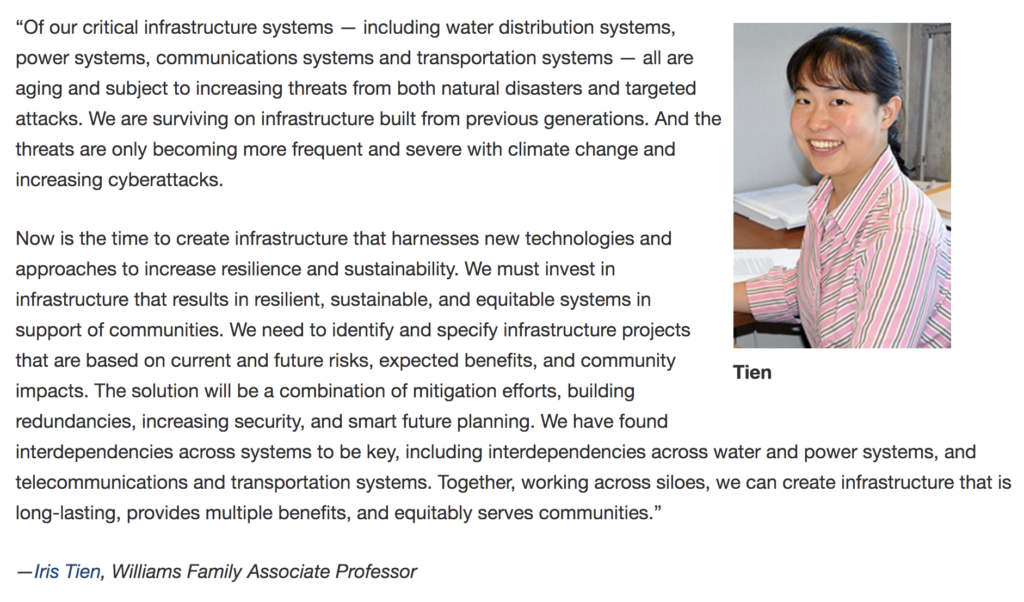
2021-22 Emerging Leaders Program Cohort Selected
![]()
June 24, 2021
The sixth cohort of Georgia Tech’s Emerging Leaders Program has been selected. Starting in Fall 2021 and continuing through Spring 2022, participants will take part in a number of leadership development activities, including a fall weekend workshop, monthly workshops, small-group work, and read more…
Methodology to Account for the Impact of Stress History in Layered Soils for Seismic Vulnerability Assessment of Scoured Bridges

Zhang, Y., and Tien, I., “Methodology to Account for the Impact of Stress History in Layered Soils for Seismic Vulnerability Assessment of Scoured Bridges,” Structure and Infrastructure Engineering, Vol. 18, No. 5, pp. 653-677, December 2020
Abstract — Scour has been recognized as one of the leading causes of bridge collapse in the United States. Therefore, it is essential to be able to build models that accurately read more…
Real-Time Network Assessment and Updating Using Vehicle-Locating Data
Funding Agency: Georgia Department of Transportation (GDOT) Project #RP20-01
Role: PI
Konstantinidis, Stewart, Tien Selected for New Endowed Professorships
![]()
June 5, 2020
Civil and Environmental Engineering faculty members Kostas Konstantinidis, Lauren Stewart and Iris Tien have been selected for three new endowed professorships, effective July 1. read more…
Methodology for Regularization of Force-Based Elements to Model Reinforced Concrete Columns with Short Lap Splices
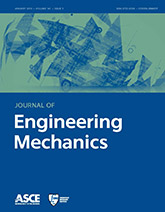
Zhang, Y., and Tien, I., “Methodology for Regularization of Force-Based Elements to Model Reinforced Concrete Columns with Short Lap Splices,” ASCE Journal of Engineering Mechanics, Vol. 146, No. 7, July 2020
Abstract — In reinforced concrete structures built before the 1970s, it was common for columns to be constructed with short lap splices and widely spaced transverse bars read more…
Brown and Tien earn tenure, four others promoted to full professor
![]()
March 31, 2020
School of Civil and Environmental Engineering faculty members Joseph Brown and Iris Tien have been promoted to associate professor and earned tenure at Georgia Tech. read more…
GT Assistant Professor Iris Tien Speaks On Community Resilience at NAS!
![]()
December 16, 2019
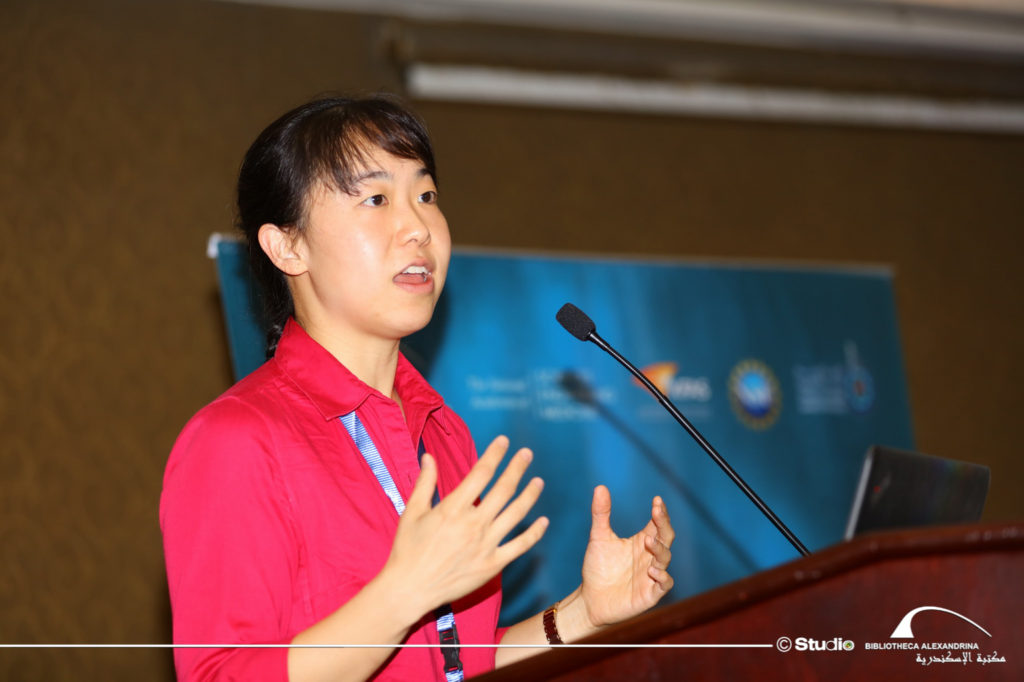
Iris Tien was invited to speak on “Community Resilience” in Cairo, Egypt, at the National Academies Arab-American Frontiers of Science, Engineering, and Medicine Symposium, organized by the U.S. National Academies of Science, Engineering, and Medicine in partnership with the Library of Alexandria and the Academy of Scientific Research and Technology. She spoke on “The Role of Infrastructure Systems in Community Resilience.”
Leveraging Uncertain Disaster Field Data for Community-Scale Assessment of Connected Buildings and Lifelines
Funding Agency: National Institute of Standards and Technology (NIST) Award #70NANB19H062
Role: PI
Characterizing End-to-End Risk of the Telecommunications Supply Chain
Funding Agency: Department of Homeland Security (DHS) Award #2015ST061-CIRC01
Role: PI
NIST Awards $6.6 Million for Research to Help Structures Better Withstand Earthquakes, Wind and Fire
![]()
August 8, 2019
The U.S. Department of Commerce’s National Institute of Standards and Technology (NIST) is awarding more than $6.6 million to fund research into improving disaster resilience. Eleven organizations will receive 12 grants to conduct research into how earthquakes, wind and fire affect the built environment to inform building designs, codes and standards to help those structures better withstand such hazards. read more…
Probability Propagation Method for Reliability Assessment of Acyclic Directed Networks

Tong, Y., and Tien, I., “Probability Propagation Method for Reliability Assessment of Acyclic Directed Networks,” ASCE-ASME Journal of Risk and Uncertainty in Engineering Systems, Vol. 5, No. 3, September 2019
Abstract — Many civil infrastructure systems that deliver resources from source points to sinks, e.g., power distribution and gas pipeline networks, can be described as read more…
Impact of Corrosion on Risk Assessment of Shear-Critical and Short Lap-Spliced Bridges
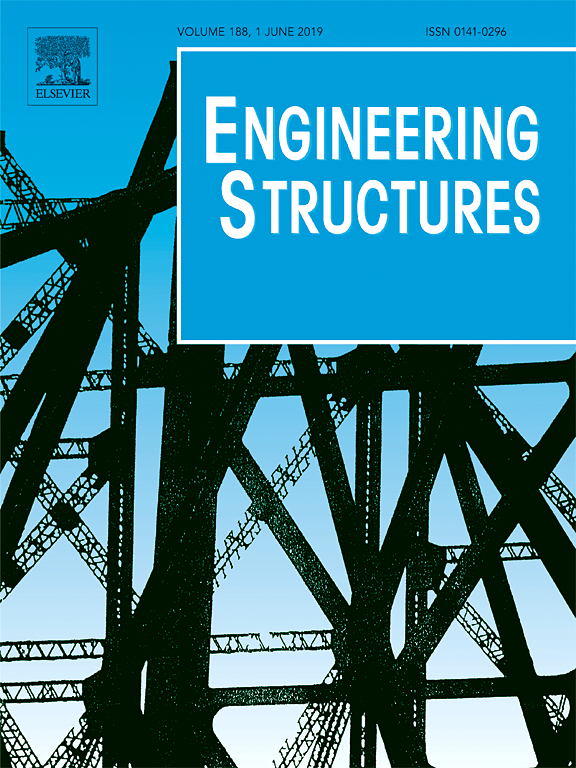
Zhang, Y., DesRoches, R., and Tien, I., “Impact of Corrosion on Risk Assessment of Shear-Critical and Short Lap-Spliced Bridges,” Engineering Structures, Vol. 189, pp. 260-271, June 2019
Abstract — Increasing corrosion in aging reinforced concrete structures is increasing their vulnerability to failures. This is particularly true for bridges with low-ductility read more…
Building a Better Foundation: Iris Tien Accepts the Challenge
![]()
By Victor Rogers | January 22, 2019

For Iris Tien every road, bridge, or building is a potential research project. As an assistant professor in the School of Civil and Environmental Engineering, her research focuses on structures and infrastructure systems. She studies ways to design better buildings, bridges, and distributed networks. The objective is to design water distribution systems, power networks, and transportation systems that perform better under various circumstances such as natural disasters, outages, or other disruptions and also can withstand aging, degradation, and climate change.
“My research definitely affects how I look at the world around me,” said Tien, who currently has a project looking at corrosion on bridges. “Now, every time I go under a bridge, I’m looking at the columns.”
In recent years, much attention has been given to the United States’ aging infrastructure. Tien welcomes the discussion. read more…
Analytical Probability Propagation Method for Reliability Analysis of General Complex Networks
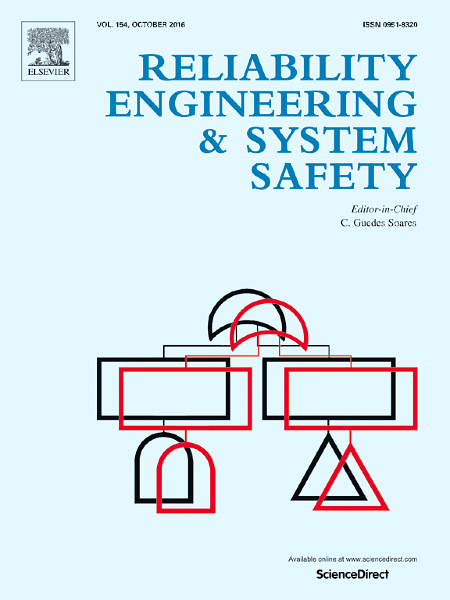
Tong, Y., and Tien, I., “Analytical Probability Propagation Method for Reliability Analysis of General Complex Networks,” Reliability Engineering and System Safety, Vol. 189, pp. 21-30, 2019
Abstract — Reliability analysis of complex networks is often limited by large and exponentially increasing computational requirements with system size. In this paper, a new read more…
CIRI’s Tien works with Rockefeller Foundation to create more resilient City of Atlanta
![]()
December 4, 2018

CIRI’s Iris Tien, assistant professor in the School of Civil and Environmental Engineering at Georgia Institute of Technology, has been chosen to co-lead a Discovery Area Working Group for the City of Atlanta, through the Rockefeller Foundation 100 Resilient Cities (100RC) program. Cities chosen to participate in 100RC are provided the requisite resources to develop a “roadmap to resilience” along physical, social, and economic axes, according to the group’s website. The City of Atlanta’s particular set of challenges revolves around the impact of inadequate transportation infrastructure on other critical infrastructure sectors, as they are interdependent on each other.
Tien’s interdisciplinary background and prior work with CIRI have equipped her to co-lead the 100RC working group, which aims to “strengthen and maintain infrastructure and promote community preparedness.” Tien’s expertise includes analysis of water distribution systems and their connections with read more…
Framework for Probabilistic Vulnerability Analysis of Interdependent Infrastructure Systems
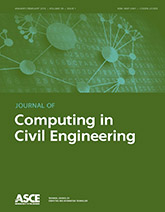
Applegate, C., and Tien, I., “Framework for Probabilistic Vulnerability Analysis of Interdependent Infrastructure Systems,” ASCE Journal of Computing in Civil Engineering, Vol. 33, No. 1, January 2019
Abstract — Critical infrastructure systems are deteriorating and experiencing increased cascading failures. In this paper, we propose a new probabilistic framework read more…
CE’s Tien Invited to National Academy Frontiers in Engineering Symposium
![]()
October 30, 2018
The School of Civil and Environmental Engineering’s Iris Tien has just returned from two days of meetings and idea-sharing with some of the nation’s most promising young engineers.
Organized by the National Academy of Engineering, the Frontiers of Engineering symposium gathers what the academy calls “exceptional” engineers from 30 to 45 years old to facilitate “cross-disciplinary exchange and promote the transfer of new techniques and approaches across fields in order to sustain and build U.S. innovative capacity.”
This year’s US Frontiers of Engineering was hosted by MIT Lincoln Laboratory in Lexington, Massachusetts. About 100 outstanding early career engineers met for an intensive 2-1/2 day symposium to discuss cutting-edge developments in four areas: Quantum Computers, the Role of Engineering in the Face of Conflict and Disaster, Resilient and Reliable Infrastructure, and Theranostics.
It’s a highly competitive and prestigious invitation extended to fewer than 100 people this year, according to the academy. It’s also the second consecutive year Tien has participated in the meeting; for 2018, she helped organize the session on resilient and reliable infrastructure. Invited participants for 2018 included three other early career professors from Georgia Tech, as well as rising stars from companies like Medtronic, Microsoft and General Motors.
This is the second Frontiers symposium Tien has attended this year; she attended the Japan-America Frontiers of Engineering earlier this summer.
Probabilistic Framework for Integrating Multiple Data Sources to Estimate Disaster and Failure Events and Increase Situational Awareness

Lee, C., and Tien, I., “Probabilistic Framework for Integrating Multiple Data Sources to Estimate Disaster and Failure Events and Increase Situational Awareness,” ASCE-ASME Journal of Risk and Uncertainty in Engineering Systems, Vol. 4, No. 4, December 2018
Abstract — As data for monitoring the natural and built environments become increasingly prevalent, integrating information from varied data sources offers a fuller read more…
Probabilistic Evaluation of Concrete Freeze-Thaw Design Guidance

Smith, S., Kurtis, K., and Tien, I., “Probabilistic Evaluation of Concrete Freeze-Thaw Design Guidance,” Materials and Structures, Vol. 51, No. 5, pp. 124-137, October 2018
Abstract — A novel limit-state function using Powers’ models is developed to assess current freeze-thaw exposure categories and design criteria for concrete placements read more…
Tien, Lee win top paper award at Resilience Week 2018
![]()
September 4, 2018
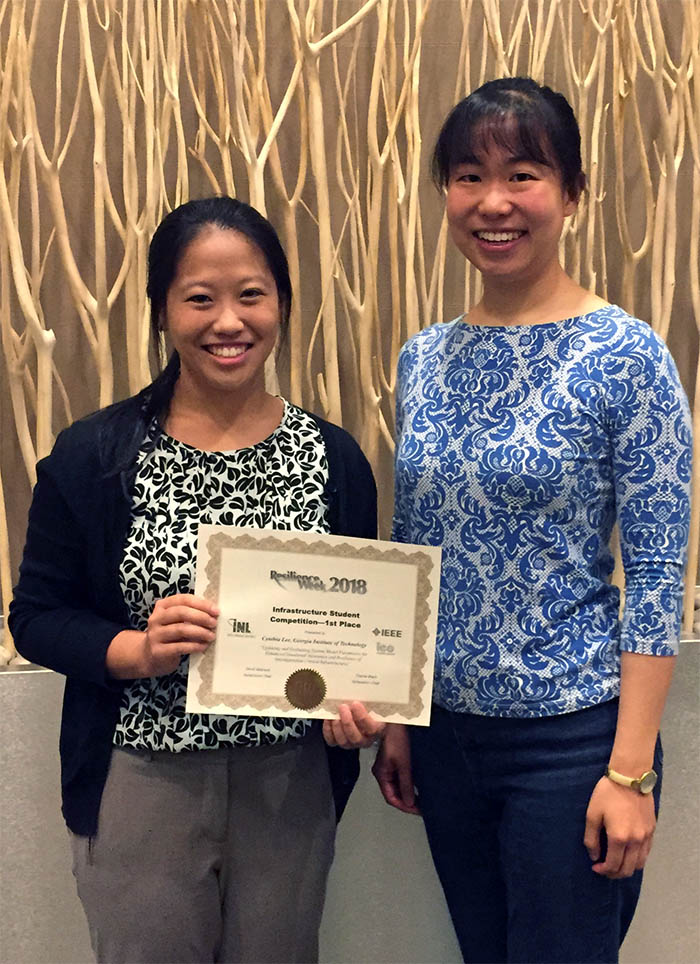 Two Georgia Tech researchers have won the first-place paper award in infrastructure at Resilience Week 2018 for their work using a variety of data sources to better understand and design infrastructure systems.
Two Georgia Tech researchers have won the first-place paper award in infrastructure at Resilience Week 2018 for their work using a variety of data sources to better understand and design infrastructure systems.
It’s the second consecutive year that Iris Tien and one of her students have won a top paper award at the conference, which focuses on making critical infrastructure — like power, water, transportation — and communities more reliable and secure.
The paper by Cynthia Lee and Tien detailed work using data from sensors, crowd-sourcing and other sources to improve what Tien called “situational awareness” for these critical systems.
“The paper showed how different sources of data help us understand these systems better, and how we might design systems with different characteristics that are more resilient,” said Tien, an assistant professor in the School of Civil and Environmental Engineering.
“A key to this is also considering interdependencies between multiple systems.”
The Resilience Week symposium would seem an ideal venue for Tien’s work understanding those interdependencies. The annual gathering of researchers and scientists from public agencies, universities and private industry focuses on uncovering the hidden connections of critical systems to more effectively mitigate the impacts from disaster and improve recovery.
National Academy invites Tien to Japan-America Frontiers symposium
![]()
June 27, 2018
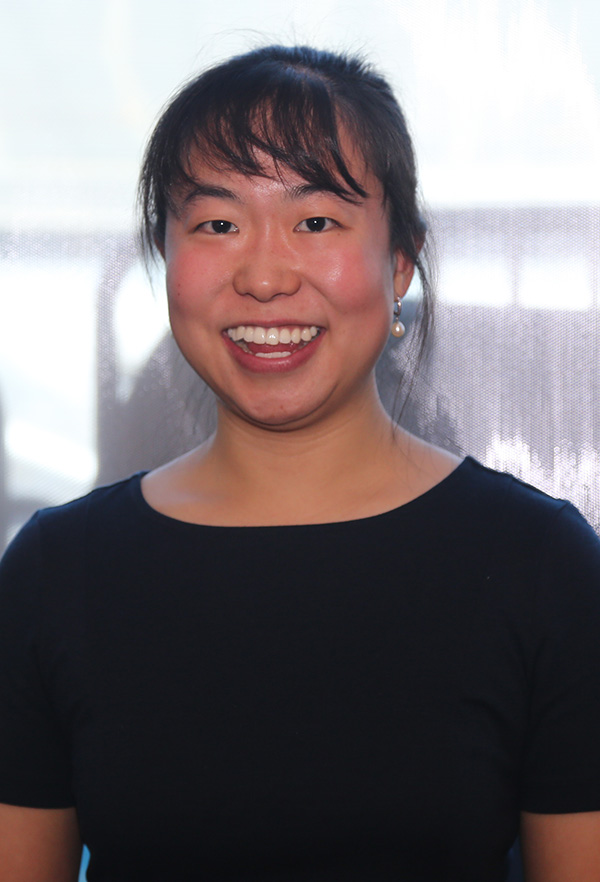
Iris Tien has just returned from a gathering of a few dozen of the most promising young engineers from the United States and Japan, thanks to an invitation from the National Academy of Engineering.
The 2018 Japan-America Frontiers of Engineering symposium invited 60 early career engineers for two days of intensive conversations about emerging technology in water treatment, bionics and prosthetics, smart structures and materials, and advanced artificial intelligence.
“It was a great opportunity to bridge across the two countries and see how Japanese and American researchers approach common research challenges,” said Tien, an assistant professor in the School of Civil and Environmental Engineering. She said the conversations allowed the group “to explore how different approaches — e.g., machine learning and systems-level analyses — apply across areas of engineering.”
Methodology for Real-Time Prediction of Structural Seismic Risk Based on Sensor Measurements
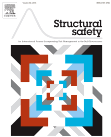
Saini, A., and Tien, I., “Methodology for Real-Time Prediction of Structural Seismic Risk Based on Sensor Measurements,” Structural Safety, Vol. 73, pp. 54-63, July 2018
Abstract — Current earthquake early warning systems utilize p-wave data to predict the extent of an earthquake threat and issue warnings at a regional scale. In the assessment of read more…
Resilient by Design: The Case for Increasing Resilience of Buildings and Their Linked Food-Energy-Water Systems

Tien, I., “Resilient by Design: The Case for Increasing Resilience of Buildings and Their Linked Food-Energy-Water Systems,” Elementa: Science of the Anthropocene, Vol. 6, No. 18, pp. 1-12, 2018
Abstract — The resilience of buildings and food, energy, and water systems (FEWS) to natural or manmade disruptions are closely linked. The resilience of a building goes beyond the safety of its structural read more…
ASCE picks Saini for Ammann Research Fellowship
![]()
February 21, 2018
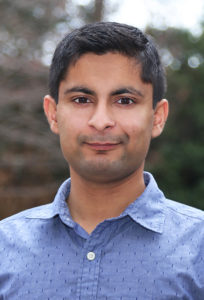
Ph.D. student Ajay Saini has earned the support of the American Society of Civil Engineers for his work on structural reliability and resilience.
The society selected Saini for its O.H. Ammann Research Fellowship in Structural Engineering this year. He said he’ll use the funding to finish his doctoral research with Assistant Professor Iris Tien building a model that optimizes structural reliability in the short and long term, accounting for seismic risks, degradation over time, and the effects of climate change.
“It is great to be recognized by ASCE, and it definitely will help with my professional career,” Saini said. “It is also added responsibility and motivation and a great recognition of the research we are all doing here as a research group at Tech.”
Saini said he became interested in mitigating earthquake risks for structures as an undergraduate, but it wasn’t until he took a class from Tien that he became interested in broader risk assessments. read more…
Atlanta’s Airport Disaster Sounds Aviation Alarm Bell

By John Donovan | December 19, 2017
When the lights went out at Hartsfield-Jackson Atlanta International Airport on Sunday, Dec. 20, 2017, darkness fell quickly over the world of commercial aviation.
…
Location, Location, Location
“I think that [problem] was kind of highlighted in this instance. [Backup systems] often are located in the same spot,” says Iris Tien, a professor at Georgia Tech who earned her doctorate in civil systems engineering from the University of California, Berkeley. “This just showed this might not be the best design system.” read more…
Airport’s Blackout Could Cost More Than Apologies

By Ross Terrell, Tasnim Shamma | December 18, 2017
The blackout at Hartsfield-Jackson Atlanta International Airport on Sunday may have cost more than peace of mind.
…
Iris Tien, an engineering professor at Georgia Tech, said Georgia Power and airport officials should look at ways to make sure the power units are more equipped to handle an emergency like this.
“Something that comes out of this event and other events we’ve seen is that you need to have not only these functionally separated but these geographically separated back-up as well,” Tien said.
Tien said designing a power grid to withstand a fire looks different than building one to handle a natural disaster like a hurricane.
Georgia Power officials said the investigation into what happened could last through the end of the week. Officials say it will be a lengthy process before the main system is fully repaired.
Atlanta power outage a ‘wake-up call’ for nation’s airports

By David Wickert and J. Scott Trubey | December 18, 2017
The fire that shut down power at Hartsfield-Jackson International Airport was a wake-up call for airports across the country, experts say. Though the airport and Georgia Power are still investigating the cause, aviation experts questioned why the parts of the backup electrical system serving the airport were located so close to the main power system – close enough that both were disabled by a single fire.
“In the 40 years or so the airport has been here, we’ve never had anything like this happen,” airport communications director Reese McCranie said.
…
Iris Tien, an assistant professor of civil engineering at Georgia Tech, has studied redundant electrical and other systems. She said there needs to be a balance between keeping backup systems close enough to make repairs easy and far enough away to make sure they can’t be compromised along with the main system.
Cost is also a factor.
“You have to be redundant while still being financially feasible,” Tien said.
…
“The redundant systems we put in place we believe would have covered a power outage,” McCranie said. “Because of yesterday’s power outage, we’re reviewing that very closely. We’re looking at possible remedies.”
CEE 8813: Data Analytics for CEE Systems (new course)
Level: Graduate
Class Size: 30
Course Objectives:
This course provides in-depth knowledge and application of methods and techniques to use data for the monitoring, assessment, and control of civil and environmental engineering (CEE) systems. The course is divided into three main modules: (1) data collection and monitoring, (2) analytics and learning, and (3) prediction and control. Topics include: (1): sampling, control variables, optimal sensor placement, and value of information; (2): data filtering, regression, classification, and machine learning; and (3): prediction algorithms, control methods, human behavior change, and public policy considerations. The course format combines theoretical foundations and hands-on application of concepts.
Tien, Johansen win Resilience Week top award for paper on vulnerabilities of interdependent infrastructure
![]()
October 19, 2017
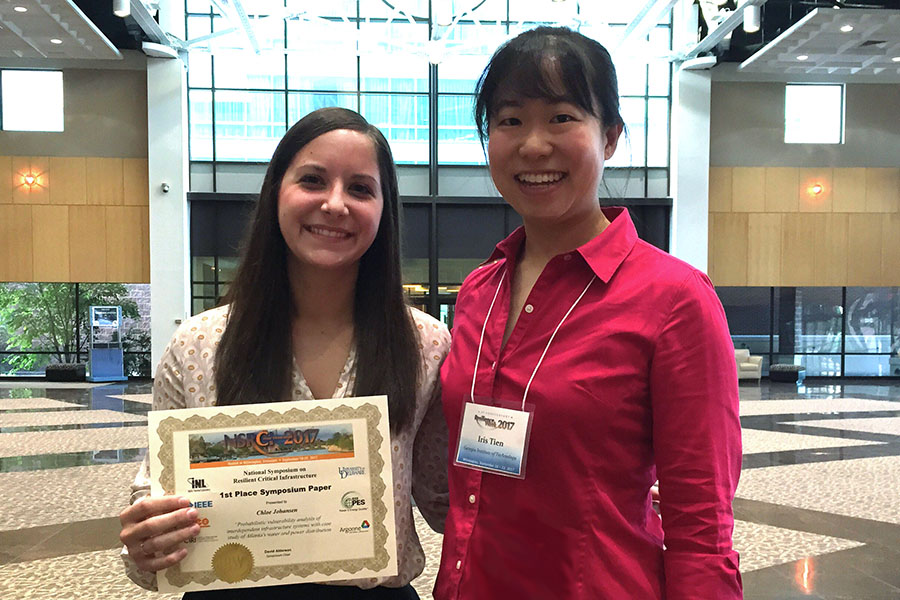 Iris Tien and Ph.D. student Chloe Johansen won a top award at the Resilience Week 2017 conference for their paper on analyzing the vulnerabilities of interdependent infrastructure.
Iris Tien and Ph.D. student Chloe Johansen won a top award at the Resilience Week 2017 conference for their paper on analyzing the vulnerabilities of interdependent infrastructure.
Using Atlanta’s water and power systems as a case study, Tien and Johansen presented their probabilistic approach to modeling interactions between infrastructure systems including how to identify critical components and weak spots. Their paper won the first-place award in the resilient critical infrastructure category at the conference in September.
“The paper is related to the work I am doing in modeling interdependent critical infrastructure systems. It specifically looks at the City of Atlanta systems where we are able to do some unique validation with real events,” said Tien, an assistant professor in the School of Civil and Environmental Engineering. read more…
Bridge Resilience Assessment with INSPIRE Data
Funding Agency: US Department of Transportation (USDOT) Award #00055082-02B
Role: PI
Probabilistic Multi-Scale Modeling of Interdependencies between Critical Infrastructure Systems for Resilience

Johansen, C., and Tien, I., “Probabilistic Multi-Scale Modeling of Interdependencies between Critical Infrastructure Systems for Resilience,” Sustainable and Resilient Infrastructure, Vol. 3, No. 1, pp. 1-15, 2018
Abstract — The prevalence of aging infrastructure and an increase in cascading failures have highlighted the need to focus on building strong, interdependent infrastructure read more…
Reliability Assessment of Critical Infrastructure Using Bayesian Networks
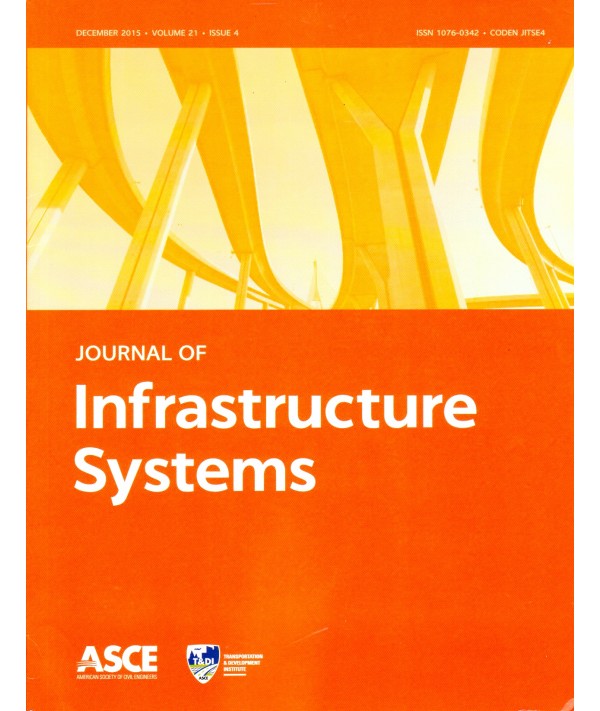
Tien, I., and Der Kiureghian, A., “Reliability Assessment of Critical Infrastructure Using Bayesian Networks,” ASCE Journal of Infrastructure Systems, Vol. 23, No. 4, December 2017
Abstract — The authors present a Bayesian network (BN)-based approach for modeling and reliability assessment of infrastructure systems. The BN is a powerful framework read more…
Tien invited to join nation’s brightest young engineers at 2017 Frontiers of Engineering symposium
![]()
June 23, 2017
The School of Civil and Environmental Engineering’s Iris Tien will travel to Connecticut this fall for two days of meetings and idea-sharing with some of the nation’s most promising young engineers.
Organized by the National Academy of Engineering, the Frontiers of Engineering symposium gathers what the academy calls “exceptional” engineers from 30 to 45 years old to facilitate “cross-disciplinary exchange and promote the transfer of new techniques and approaches across fields in order to sustain and build U.S. innovative capacity.”
It’s a highly competitive and prestigious invitation extended to only 82 people this year, according to an academy news release.
“My research is highly interdisciplinary, and at the symposium, I am looking forward to connecting with colleagues across engineering,” said Tien, an assistant professor in the School.
Algorithms for Bayesian Network Modeling, Inference, and Reliability Assessment for Multistate Flow Networks

Tong, Y., and Tien, I., “Algorithms for Bayesian Network Modeling, Inference, and Reliability Assessment for Multistate Flow Networks,” ASCE Journal of Computing in Civil Engineering, Vol. 31, No. 5, September 2017
Abstract — The Bayesian network (BN) is a useful tool for the modeling and reliability assessment of civil infrastructure systems. For a system comprising many read more…
WABE Closer Look: Manchester Bombing; I-85 Lessons; And More
May 24, 2017

By Fenly Foxen
Wednesday on “Closer Look with Rose Scott and Jim Burress:”
18:01: Dr. Iris Tien, an assistant professor at Georgia Tech’s School of Civil and Environmental Engineering, tells us what lessons can be learned after the reconstruction of the collapsed Interstate 85 bridge
Tien (center) with Jim Burress (left) and Rose Scott (right) after Tien’s interview on Atlanta’s infrastructure on the WABE program “Closer Look with Rose Scott and Jim Burress.” WABE is Atlanta’s NPR station.
Framework for Probabilistic Assessment of Maximum Nonlinear Structural Response Based on Sensor Measurements: Discretization and Estimation

Saini, A., and Tien, I., “Framework for Probabilistic Assessment of Maximum Nonlinear Structural Response Based on Sensor Measurements: Discretization and Estimation,” ASCE Journal of Engineering Mechanics, Vol. 143, No. 9, September 2017
Abstract — A probabilistic framework to draw real-time inferences on the maximum response of an uncertain nonlinear structural system under stochastic excitation based on read more…
Impacts of Climate Change on the Assessment of Long-Term Structural Reliability

Saini, A., and Tien, I., “Impacts of Climate Change on the Assessment of Long-Term Structural Reliability,” ASCE-ASME Journal of Risk and Uncertainty in Engineering Systems, Vol. 3, No. 3, September 2017
Abstract — Global climate change has triggered studies across various science and engineering fields. This study demonstrates the need to account for climate change in assessing read more…
Mapping Infrastructure Interdependencies for Improved Emergency Management and Resilience Investment Decisions
Funding Agency: Department of Homeland Security (DHS) Award #2015ST061-CIRC01
Role: PI
I-Corps: Software for Optimized Infrastructure Asset Management, Repair, and Recovery
Funding Agency: National Science Foundation (NSF) Award #1712613
Role: PI
Awards recognize CEE’s top scientists, researchers, teachers and staff members
![]()
November 14, 2016
The School of Civil and Environmental Engineering recognized excellence in research, teaching and staff support at the School’s annual awards ceremony Nov. 14.
Karen and John Huff School Chair Reginald DesRoches handed out 17 awards to students, faculty and staff along with Ted Russell, chair of the School’s awards committee. The committee decided whom to honor based on the nominations of their colleagues or faculty advisers.
The committee will forward many of the School-level honorees for consideration in the Georgia Tech awards programs this spring.
This year’s winners:
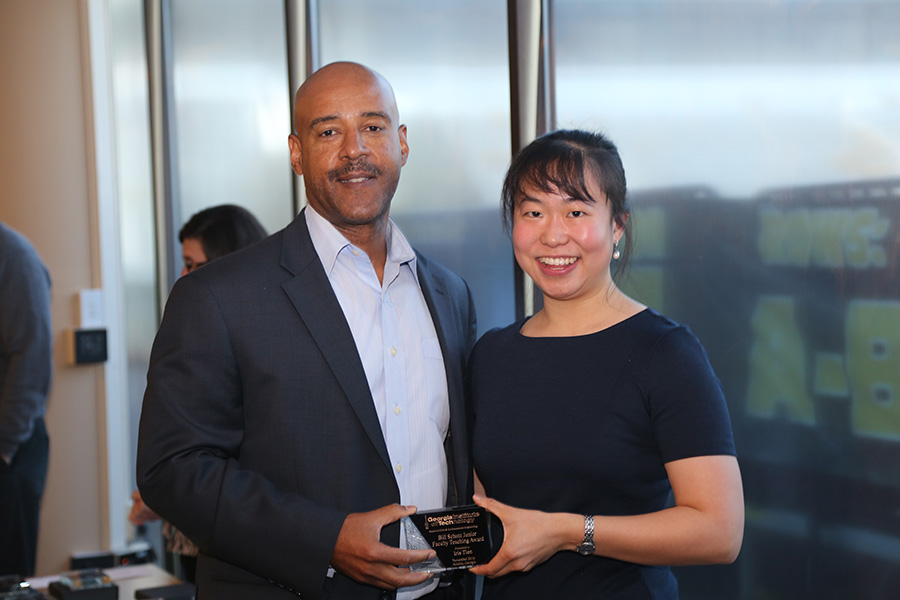
Iris Tien
Bill Schutz Junior Faculty Teaching Award
Pipeline Blast Highlights Oil’s Achilles’ Heel
The Colonial Pipeline network’s most recent accident reminds us that our fossil fuel infrastructure is vulnerable
By Matt Smith | November 3, 2016 | Sierra Magazine
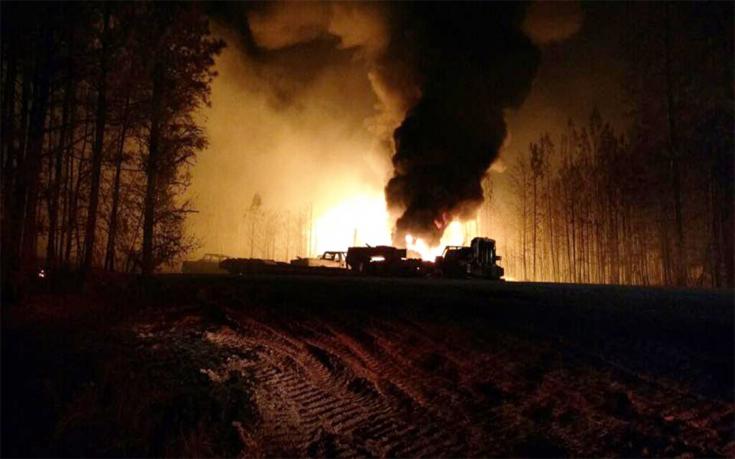
Colonial Pipeline fire | Photo courtesy of the Alabaster Fire Department
An explosion that sent a column of smoke towering over the Alabama hills has Southeastern cities bracing for possible price spikes and gasoline shortages for the second time in six weeks.
The Monday afternoon explosion has again shut down the 5,500-mile Colonial Pipeline network, which funnels fuel from Houston to New Jersey—showing the extent to which America’s fossil fuel infrastructure is vulnerable.
“I think the effect may be pretty immediate, given the volume that goes through that pipeline,” said Dr. Iris Tien, an assistant professor of civil engineering at the Georgia Institute of Technology in Atlanta. “One of the shortcomings of our infrastructure is we don’t have a lot of redundancy when it comes to these gas pipelines, so we rely on very few sources for a lot of our supply.” read more…
Failing infrastructure: We can’t fix it all, so Chloe Johansen’s research will help us prioritize
![]()
October 20, 2016
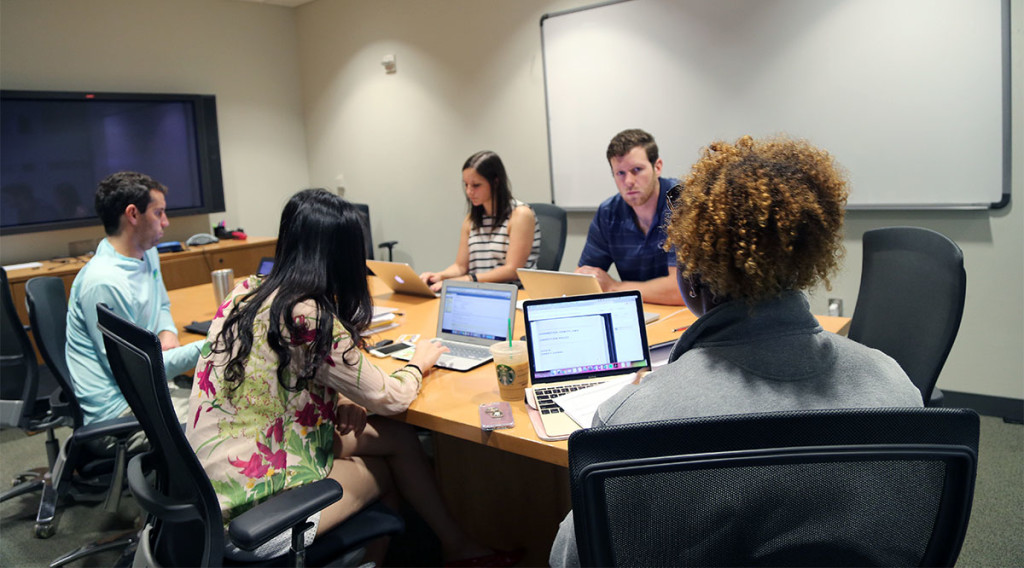
Ph.D. student Chloe Johansen, third from left, brainstorms with her group members on an October morning. Their group is part of the Scheller College of Business’ Technological Innovation: Generating Economic Results program (TI:GER). Johansen is working with two business students and two Emory University law students to commercialize her Ph.D. research. She’s trying to create software to model the behavior and interdependence of infrastructure systems. The group members are, left to right, Scheller MBA student Greg Van Volkenburg, Emory law student Ruohong Yao, Johansen, MBA student Chris Bergman, and law student Victoria Sparks. (Photo: Joshua Stewart)
America’s infrastructure systems are in terrible shape and getting worse.
That’s been the refrain from the American Society of Civil Engineers since its most-recent infrastructure report card found virtually all of the nation’s systems for moving people, energy, commerce, waste are falling apart.
The organization estimates we’ll need to spend $3.6 trillion — with a “t” — by 2020 just to repair or replace what’s failing.
Enter Chloe Johansen, a School of Civil and Environmental Engineering Ph.D. student working in Assistant Professor Iris Tien’s research group.
Metrics for Evaluating and Improving Community Resilience

Johansen, C., Horney, J., and Tien, I., “Metrics for Evaluating and Improving Community Resilience,” ASCE Journal of Infrastructure Systems, Vol. 23, No. 2, June 2017
Abstract — The growing risk of natural and artificial or manufactured hazards combined with a lack of community preparedness have revealed the necessity for comprehensive read more…
Tien wins award for helping bring engineering concepts to middle school science lessons
![]()
August 29, 2016
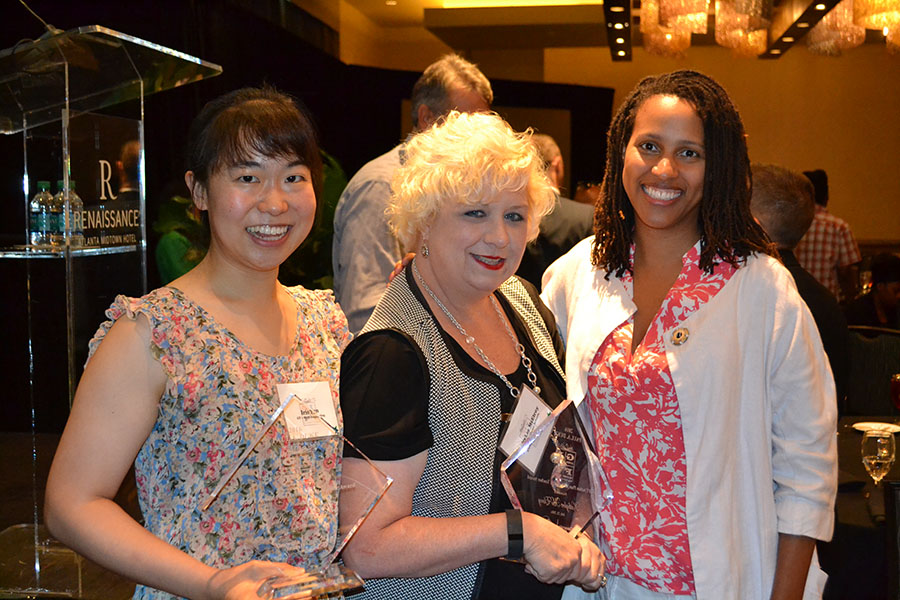
Iris Tien, left, with Gwinnett County middle school teacher Kathylee McElroy and Jamila Cola after Tien and McElroy won awards for their collaboration on engineering lesson plans for McElroy’s science classes. They’ve been working together for two years through a program made possible by the National Science Foundation Partnerships for Research, Innovation, and Multi-Scale Engineering. Cola is the director of that program.
Georgia Tech’s K-12 outreach program has recognized Assistant Professor Iris Tien for her work helping some Atlanta-area middle school students learn about engineering.
Tien has been working with Northbrook Middle School teacher Kathylee McElroy to incorporate engineering concepts into McElroy’s science lessons. The collaboration won Tien and McElroy 2016 Paul A. Duke GIFT Action Plan Achievement awards earlier this month from Georgia Tech’s Center for Education Integrating Science, Mathematics and Computing (CEISMC).
“It is important to expose students to engineering concepts early, including ideas about risk and hazards, and building civil engineering structures to withstand those hazards,” said Tien, whose work includes risk assessment and decision-making under uncertain conditions. read more…
Algorithms for Bayesian Network Modeling and Reliability Assessment of Infrastructure Systems
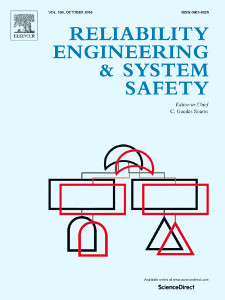 Tien, I., and Der Kiureghian, A., “Algorithms for Bayesian Network Modeling and Reliability Assessment of Infrastructure Systems,” Reliability Engineering and System Safety, Vol. 156, pp. 134-147, December 2016
Tien, I., and Der Kiureghian, A., “Algorithms for Bayesian Network Modeling and Reliability Assessment of Infrastructure Systems,” Reliability Engineering and System Safety, Vol. 156, pp. 134-147, December 2016
Abstract — Novel algorithms are developed to enable the modeling of large, complex infrastructure systems as Bayesian networks (BNs). These include a compression read more…
Building Infrastructure, Building Communities
By Iris Tien | July 19, 2016
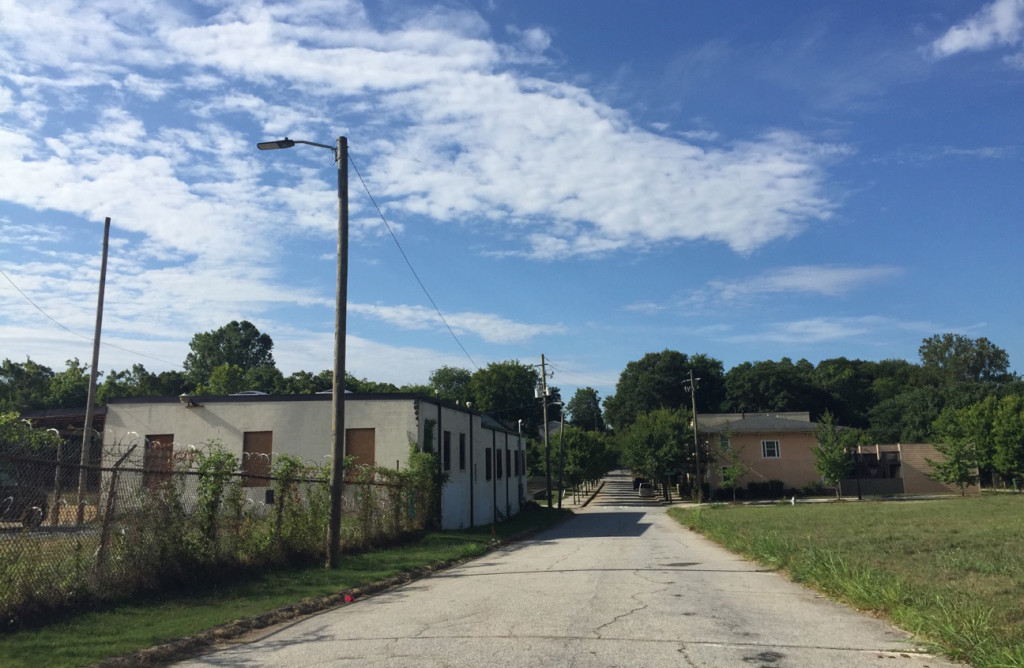 A neighborhood on the Westside of Atlanta, an example of the premise that has been stuck in Iris Tien’s mind recently: how the infrastructure civil and environmental engineers build — or the lack thereof in areas like this — influences the surrounding community. (Photo: Iris Tien)
A neighborhood on the Westside of Atlanta, an example of the premise that has been stuck in Iris Tien’s mind recently: how the infrastructure civil and environmental engineers build — or the lack thereof in areas like this — influences the surrounding community. (Photo: Iris Tien)
It has been more than a month since the Integrated Network for Social Sustainability (INSS) Conference, organized in part by Serve-Learn-Sustain (SLS) at Georgia Tech, and the topics we discussed still stay with me. As a civil engineer, what has specifically stuck with me, and what I think will continue to color how I think about social sustainability, is the vital role of civil infrastructure in building communities. read more…
Probabilistic Framework for Assessing Maximum Structural Response Based on Sensor Measurements

Tien, I., Pozzi, M., and Der Kiureghian, A., “Probabilistic Framework for Assessing Maximum Structural Response Based on Sensor Measurements,” Structural Safety, Vol. 61, pp. 43-56, July 2016
Abstract — A probabilistic framework for Bayesian inference combined with extreme values of Gaussian processes is proposed to assess the maximum of the response of an read more…
National Academies Government-University-Industry Research Roundtable (GUIRR): Critical Infrastructure Security

GT in DC | Prepared by Lewis-Burke Associates LLC | February 29, 2016
On February 24, Iris Tien, Assistant Professor at the School of Civil and Environmental Engineering, participated in a panel discussion on threat and impact modeling, at the National Academy’s Critical Infrastructure Security event in Washington, DC. read more…
Detection of Damage and Failure Events of Critical Public Infrastructure Using Social Sensor Big Data
 Tien, I., Musaev, A., Benas, D., Ghadi, A., Goodman, S., and Pu, C., “Detection of Damage and Failure Events of Critical Public Infrastructure Using Social Sensor Big Data,” Proceedings of the International Conference on Internet of Things and Big Data (IoTBD 2016), Rome, Italy, pp. 435-440, April 23-25, 2016
Tien, I., Musaev, A., Benas, D., Ghadi, A., Goodman, S., and Pu, C., “Detection of Damage and Failure Events of Critical Public Infrastructure Using Social Sensor Big Data,” Proceedings of the International Conference on Internet of Things and Big Data (IoTBD 2016), Rome, Italy, pp. 435-440, April 23-25, 2016
Abstract — Public infrastructure systems provide many of the services that are critical to the health, functioning, and security of society. Many of these infrastructures, however, lack continuous physical sensor read more…
CEE 6540: Engineering Risk Analysis (new course)
Level: Graduate
Class Size: 20
Course Objectives:
This course presents fundamental concepts of probability theory, risk analysis, and decision theory through their application to civil engineering systems. It introduces students to the many sources of uncertainty that influence engineering decisions, and provides tools and methods to model and analyze these uncertainties in the context of engineering risk assessment. Emphasis is placed on probabilistic modeling and topics covered include: random variables and functions of random variables, probability distributions for risk analysis in civil and environmental engineering problems, Bayesian methods, and risk-informed decision making.
CRISP Type 1: Multi-Scale Modeling Framework for the Assessment and Control of Resilient Interdependent Critical Infrastructure Systems
Funding Agency: National Science Foundation (NSF) Award #1541074
Role: PI
Tien invited to Arab-American Frontiers Symposium on sensing technology and applications
![]()
October 1, 2015
Some of the world’s brightest scholars gather in Saudi Arabia in December to talk about the latest advances in sensing technologies and networks.
The School of Civil and Environmental Engineering’s Iris Tien has been invited to join them. read more…
Tien wins NSF funding to improve reliability of our interdependent infrastructure
![]()
September 17, 2015
 The National Science Foundation has awarded Iris Tien $499,920 for a three-year project that will develop new computer models of infrastructure systems and the connections between them.
The National Science Foundation has awarded Iris Tien $499,920 for a three-year project that will develop new computer models of infrastructure systems and the connections between them.
The idea is to create a model that can be used for any infrastructure system — water, power, transportation, or communications, for example — and takes into account each component of the system as well as how the system interacts with other infrastructure.
The result will be software that can help utilities make real-time decisions and even automatically adjust how infrastructure operates to account for problems.
“Infrastructure systems are very critical to a functioning society, how we go about our day-to-day lives. They’re critical for the security of our country and for being able to be productive and healthy and safe,” Tien said. “As these systems are subject to more and more hazards of different types, it’s really important for us to be able to model these systems properly and to be able to make decisions about how we manage these systems so they perform better under different adverse conditions.”
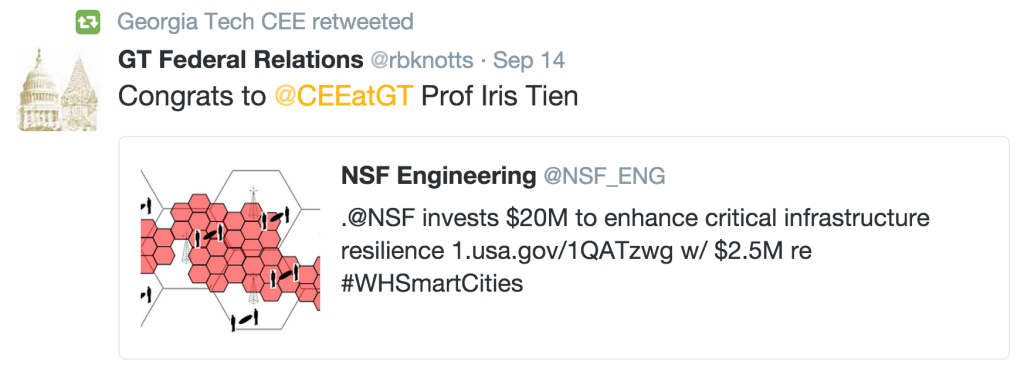
NSF invests $20 million to enhance resilience of critical infrastructure
 Press Release 15-108 | September 14, 2015
Press Release 15-108 | September 14, 2015
Infrastructure must outsmart disruptions to continue delivery of essential goods and services
Americans rely upon critical infrastructure systems to provide services such as clean water, electricity, transportation and healthcare. These systems are becoming increasingly interconnected, while our demands on them and the hazards they face grow.
To address our nation’s critical need for more resilient infrastructure and enhanced services, the National Science Foundation (NSF) has invested $20 million in new fundamental research to transform infrastructure, from physical structures to responsive systems.
Leading the Way in Women Engineering Faculty
![]()
Number of COE Women Faculty Puts Tech at the Top Nationally
The relatively low proportion of women in academic science and engineering has been the topic of numerous recent books and reports but as Bob Dylan sang “the times they are a changing.”
…
Gender diversity has become more valued among college faculty and the College of Engineering has been aggressive in trying to address women’s underrepresentation in the faculty as well as student ranks. The proportion of engineering doctoral degrees earned by women has risen considerably in the past several decades and with it has come opportunities to recruit more women to faculty positions. Today, Tech is the number one producer of women engineers in the country and a leader in female engineering faculty.
 Meet some of our “Women in Engineering” faculty members who are changing the world with their research as well as the face of engineering.
Meet some of our “Women in Engineering” faculty members who are changing the world with their research as well as the face of engineering.
Dr. Iris Tien
How would you explain your research?
My research is in creating new ways to model and assess the reliability of complex civil infrastructure systems, including water, energy, communications, and transportation systems. The goal is that flexible and sophisticated models combined with data from a variety of sources will help us make smarter decisions in how we manage these systems so they perform better when bad things happen.
Why Georgia Tech: Questions with Iris Tien
![]()
By Amelia Pavlik | February 10, 2015
 Iris Tien is an assistant professor in the School of Civil and Environmental Engineering at Georgia Tech. Recently, the Office of Faculty Affairs had the opportunity to learn more about Tien and her time at Tech. Here’s what she said.
Iris Tien is an assistant professor in the School of Civil and Environmental Engineering at Georgia Tech. Recently, the Office of Faculty Affairs had the opportunity to learn more about Tien and her time at Tech. Here’s what she said.
Tell us a little about your research.
I develop new ways to model and assess the reliability of civil infrastructure systems, including water, power, and transportation systems. The goal is to help us make smarter decisions in how we design and manage these critical systems, so they perform better under adverse conditions. What can we do, for example, read more…
Impact of LRFD Seismic Bridge Design for Georgia
Funding Agency: Georgia Department of Transportation (GDOT) Project #RF471
Role: Co-PI
Compression and Inference Algorithms for Bayesian Network Modeling of Infrastructure Systems
![]() Tien, I., and Der Kiureghian, A., “Compression and Inference Algorithms for Bayesian Network Modeling of Infrastructure Systems,” In T. Haukaas, ed., Proceedings of the 12th International Conference on Applications of Statistics and Probability in Civil Engineering, Vancouver, Canada, July 12-15, 2015
Tien, I., and Der Kiureghian, A., “Compression and Inference Algorithms for Bayesian Network Modeling of Infrastructure Systems,” In T. Haukaas, ed., Proceedings of the 12th International Conference on Applications of Statistics and Probability in Civil Engineering, Vancouver, Canada, July 12-15, 2015
Abstract — The Bayesian network (BN) is an ideal tool for modeling and assessing the reliability of civil infrastructure, particularly when the information about the system and its components is uncertain and read more…
A Dynamic Bayesian Network Framework for Risk Assessment of Systems Based on Sensor Measurements
![]() Tien, I., Pozzi, M., and Der Kiureghian, A., “A Dynamic Bayesian Network Framework for Risk Assessment of Systems Based on Sensor Measurements,” In T. Haukaas, ed., Proceedings of the 12th International Conference on Applications of Statistics and Probability in Civil Engineering, Vancouver, Canada, July 12-15, 2015
Tien, I., Pozzi, M., and Der Kiureghian, A., “A Dynamic Bayesian Network Framework for Risk Assessment of Systems Based on Sensor Measurements,” In T. Haukaas, ed., Proceedings of the 12th International Conference on Applications of Statistics and Probability in Civil Engineering, Vancouver, Canada, July 12-15, 2015
Abstract — In this paper, a framework based the dynamic Bayesian network (DBN) is proposed to dynamically monitor the response of structures to hazards. The methodology enables the probabilistic analysis of read more…
Bayesian Network Methods for Modeling and Reliability Assessment of Infrastructure Systems
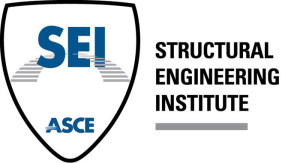 Tien, I., “Bayesian Network Methods for Modeling and Reliability Assessment of Infrastructure Systems,” ASCE Structural Engineering Institute Structures Congress, Portland, OR, April 23-25, 2015
Tien, I., “Bayesian Network Methods for Modeling and Reliability Assessment of Infrastructure Systems,” ASCE Structural Engineering Institute Structures Congress, Portland, OR, April 23-25, 2015
Tien Research Group
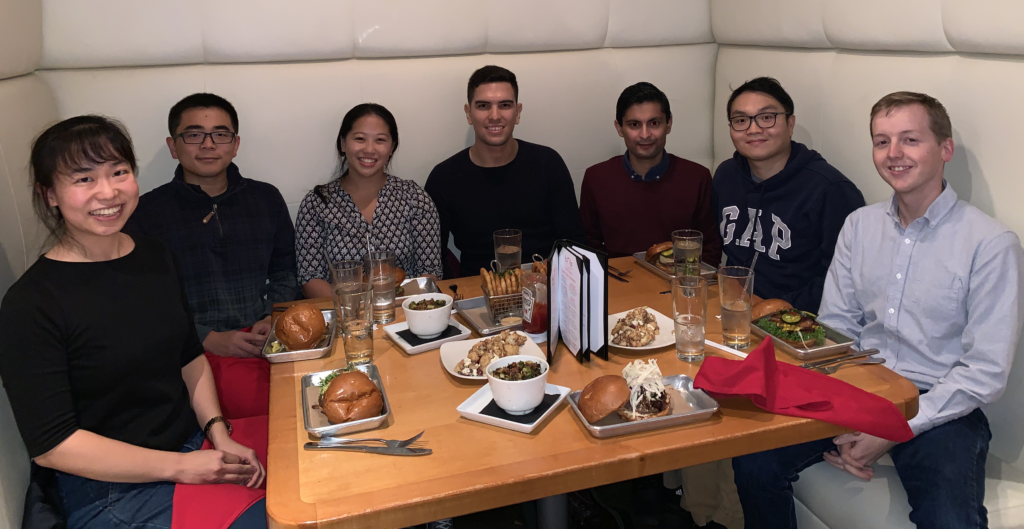
Fall 2019: from left: PI Tien, Ph.D. student Yanjie Tong, Ph.D. student Cynthia Lee, Ph.D. student Jorge-Mario Lozano, Ph.D. student Ajay Saini, Ph.D. student Yijian Zhang, Ph.D. student Christopher Dixon
Celebrating Ajay’s graduation; congratulations, Ajay!
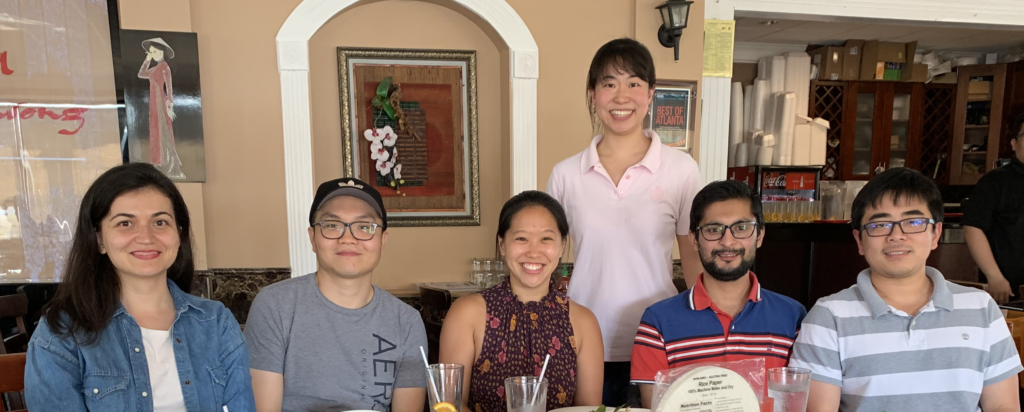
Summer 2019: from left: post-doc Nefize Shaban, Ph.D. student Yijian Zhang, Ph.D. student Cynthia Lee, PI Tien, Ph.D. student Ajay Saini, Ph.D. student Yanjie Tong
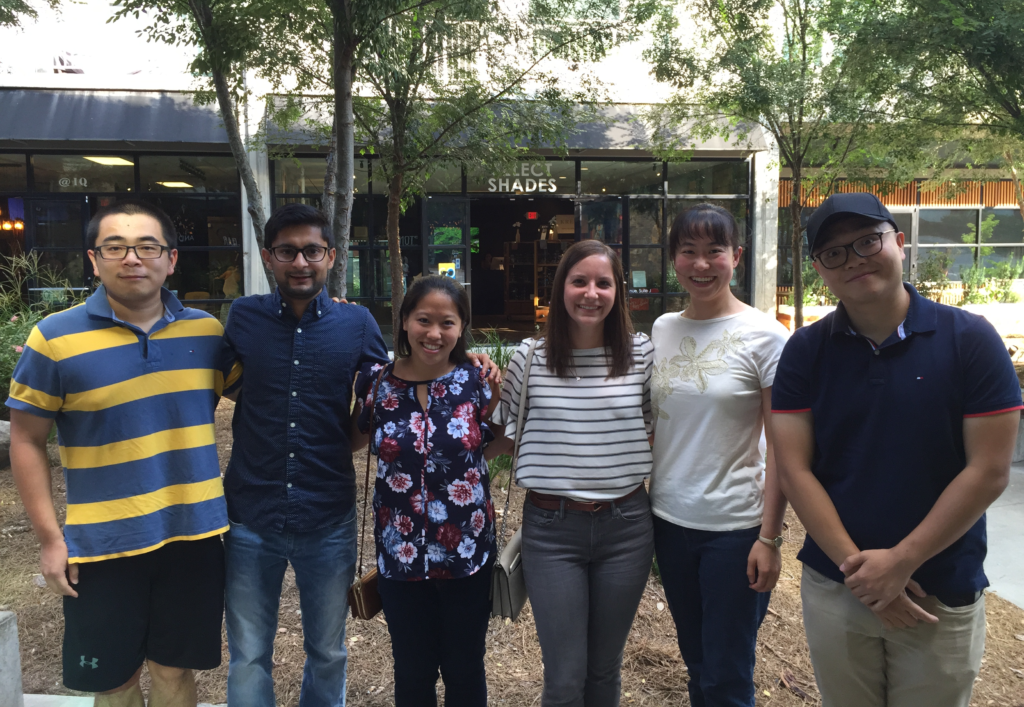
Summer 2018: from left: Ph.D. student Yanjie Tong, Ph.D. student Ajay Saini, Ph.D. student Cynthia Lee, Ph.D. student Chloe Johansen Applegate, PI Tien, Ph.D. student Yijian Zhang
Celebrating Chloe’s graduation; congratulations, Chloe!
CEE 6549: Structural Reliability
Level: Graduate
Class Size: 15
Course Objectives:
This course presents a comprehensive and in-depth coverage of modern methods for structural and system reliability assessment. It provides insights and perspectives on the use of probability-based tools and methods for the analysis of the reliability of structures under hazards, and serves to establish a strong starting point for research in the field of structural reliability. Topics include multivariate distribution models; formulation of structural reliability for components and systems; exact solutions; computational reliability methods, including first- and second-order reliability methods, Monte Carlo simulation, and importance sampling; reliability sensitivities; importance measures; and reliability analysis under statistical and model uncertainties.
10(ish) questions with new faculty member Iris Tien
![]()
September 30, 2014
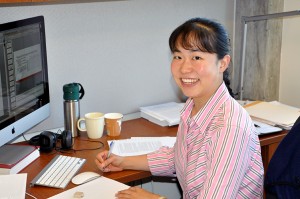
Iris Tien is the newest member of the School of Civil and Environmental Engineering faculty, joining the school this fall after completing her Ph.D. at the University of California, Berkeley. She took a few minutes recently to talk about her work and why it’s important to her.
Q: I was reading a little bit about your background and I saw you started out in medical research when you were an undergrad studying civil engineering. How did that happen?
A: I’m not your most traditional civil engineering person. read more…
CEE 4100: Construction Engineering and Management
Level: Upper-division undergraduate
Class size: 70
Course Objectives:
This course provides fundamental concepts in the planning, design, and construction of civil engineering projects. It provides an introduction to the topics of project delivery, contracts, engineering economics, cost estimation, bidding, risk analysis, scheduling, project controls, and construction law, and presents tools and techniques for the management and control of resources (e.g., time, money) on construction engineering projects.